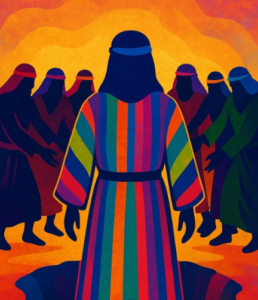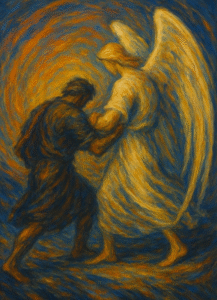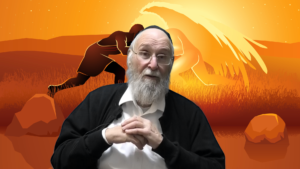Dvar Torah for Parshat Behar/Shavuot
Dvar Torah for Parshat Behar
Based on Likutey Halakhot, Areiv 3:30
“God spoke to Moshe on Mount Sinai, saying” (Leviticus 25:1).
This week’s Torah-reading starts with a mention of Mount Sinai, and because we are preparing ourselves to receive anew the holy Torah given at Sinai, let’s talk about how we can get ready.
Fill in the blank: The most necessary “thing” I need to be a better Jew is ____.
If you said ratzon—interest, desire, wanting—you are correct. Before teaching Lesson #4 in Part Two of Likutey Moharan, Rebbe Nachman taught that it was an absolute necessity for a Jew to train himself to be in a state of anticipation for God, His Torah and mitzvahs. A Jew needs to make every effort to constantly want that which is good and sacred.
To paraphrase, Rebbe Nachman said, “No one can say he serves God, not even the highest angel. We all fall short in practice. But every one can want to be a good Jew. But there is a great deal of difference between the honesty and intensity of desire that people have. Not only that—even the same person has varying degrees of desire to be a good Jew, from one day to the next. It’s critical that you develop an honest interest and desire to be a good Jew.”
The word ratzon has another meaning: will. Reb Noson explains that at bottom, God’s will, what God wants from humankind, is that we believe that everything—everything—happens solely because it is God’s will. Reb Noson goes on to explain how God’s ratzon for us and our ratzon for God are mutually dependent. He writes:
Someone who genuinely believes that everything happens solely because it is God’s will, will certainly desire God and to worship God. This is so even if he occasionally falls from his level of practice and even if he actually violates the Torah’s laws, God forbid. Nonetheless, as long as he has complete faith in God, and truly believes that nothing happens unless God wants it to happen, that person certainly still has a strong desire to serve God.
Because ultimately, what will be his destiny? There is no cover of darkness and no hiding place for those who sin. Certainly, one’s thousands of sins cannot hide him or protect him from God. The time will come when one will stand before the Throne of Glory to give a din v’cheshbon, judgment and reckoning, of all that he has done. Though a person may take all this and more to heart, it may happen that he still cannot overcome his lust. However, that does not discount or nullify his desire for God. Why? Since he believes in God’s will, that everything happens because God wills it to happen and that God will repay him, and every person, for what he has done. Who would be so foolish to not be interested and desirous to return to God, to be saved from Hell and worse, when he could merit eternal life?
Thus we find that by believing in God and that everything happens solely because of His will, one’s desire to be an ever-improving Jew will be strong even if he does not successfully convert this into practice and even if he sins. [Eventually, if his ratzon is honest, he will be more successful in living the Torah.]
So it starts with ratzon—your desire to be a good Jew—and it ends with ratzon, living in the moment-to-moment experience that all of (your) life is God’s will. But that ending is not something that you can get on your own. That, writes Reb Noson, can only be had “via unity, love and peace, that all Jews join together in love and harmony.”
Reb Noson explains that each aspect of ratzon is a guarantor for the other. That is, each is improved by the other and only in conjunction with the other. Similarly, we Jews can only receive the Torah, i.e., more truly live by it as time goes by, if each Jew (you, me and him) serves as a guarantor for every other Jew (you, him and me). What does it take to be a guarantor for each of my fellow Jews? Let me spell it out for you. It calls for a great deal of care, respect and love!
Reb Noson takes note of the question: How can I guarantee that someone else will properly keep the Torah if I can’t keep it myself? How can I pay his “loan” if I can’t pay mine? He answers that there is simply no way around it. Receiving the Torah demands unity and oneness, within and with others. When we Jews use our innate wholeness and unite to live by the Torah, with the belief that everything that happens is God’s will, we are as one.
agutn Shabbos!
Shabbat Shalom!
© Copyright 2011 Breslov Research Institute
- 0 comment






















